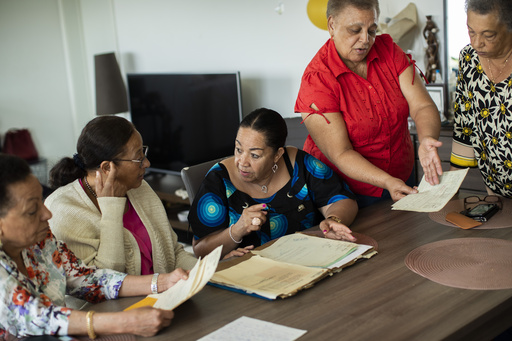
BRUSSELS — On Monday, a Belgian appeals court determined that the state of Belgium committed a crime against humanity concerning five mixed-race women from Congo, who were forcibly separated from their Black mothers during infancy.
This groundbreaking verdict addresses Belgium’s colonial history in Africa and acknowledges the prolonged legal efforts of these women, who spent approximately six years seeking recognition for the pain endured by thousands of mixed-race children. These individuals, referred to as “métis,” were taken from their families and placed in religious institutions or homes by the Belgian authorities during their colonial rule over Congo from 1908 to 1960.
Initially, a lower court had dismissed their case in 2021, but the women contested that decision.
“This brings relief to my mother as she finally receives closure,” expressed Monique Fernandes, daughter of Monique Bintu Bingi, one of the plaintiffs. “It has finally been acknowledged as a crime against humanity,” Fernandes stated.
The previous ruling had classified the actions as undesirable but not part of a broader, intentional campaign that qualifies as a crime against humanity, arguing they needed to be contextualized within the framework of European colonialism.
The recent ruling not only recognizes the atrocities faced by these women but also mandates the state to pay approximately 50,000 euros to each plaintiff. Fernandes indicated that this financial support would cover the associated costs, emphasizing that a mere symbolic gesture would have been inadequate and disrespectful given the hardships faced by her mother.
The five plaintiffs, currently in their 70s and 80s, initiated their lawsuit in 2020 driven by the rising calls for Belgium to confront its colonial past in regions such as Congo, Rwanda, and Burundi.
Following global protests against racial inequity, numerous statues of King Leopold II, who is associated with the deaths of millions in Africa during Belgium’s colonial period, have been vandalized or removed across Belgium.
In 2019, the Belgian government issued an apology for forcibly taking thousands of infants from their African mothers. Furthermore, for the first time in the nation’s history, a reigning monarch publicly expressed regret four years ago for the violence perpetrated during the colonial era.
Legal representatives for the five women revealed that they were between ages 2 and 4 when they were separated from their families at the behest of Belgian colonial authorities, in collusion with local Catholic Church officials.
Legal documents indicate that in all cases, the fathers lacked parental authority, and the Belgian administration coerced the girls’ Congolese families with threats of repercussions should they refuse to relinquish them.
According to the lawyers, the Belgian state’s approach aimed at preventing interracial relationships and isolating these “children of shame” from their heritage, thereby diminishing the likelihood of their claiming a connection to Belgium later in their lives.
“The narrative has always been that we did great things in Congo. Yet, there’s also a very grim chapter in that story,” Fernandes remarked.
